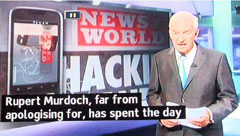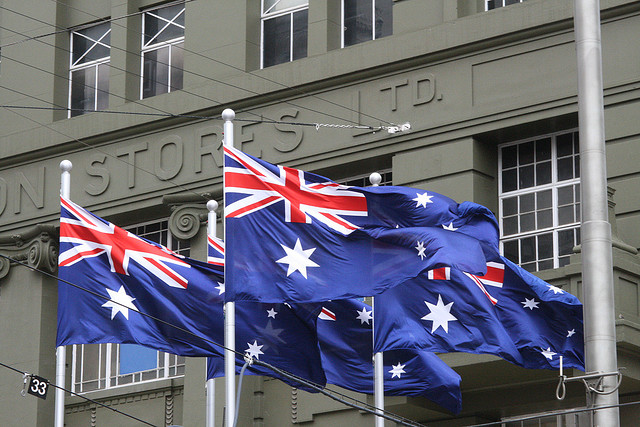 What else must happen before one of the world’s most powerful media moguls resigns?
What else must happen before one of the world’s most powerful media moguls resigns?
Rupert Murdoch does not hold a public office like Christian Wulff, the former German president, or Philipp Hildebrand, now ex-president of the Swiss National Bank. The question of whether Murdoch is legally responsible for perhaps the largest scandal to engulf the mainstream press in decades remains open.
There is, however, no doubt that he shares a political and moral responsibility for the illegal and systematic tapping of more than 6,000 telephones committed by his journalists. This is no longer a discussion about the work of a singular black sheep, one which could conceivably be found in most large newsrooms. Under Murdoch’s supervision, an undignified corporate culture surfaced, heaving journalism in a new contemptible direction. Rarely has press freedom been abused more blatantly – and thus also endangered, as such criminal energy provokes, of course, counter reactions to restrain the media.
Yet why hasn’t Murdoch suffered the same aggressive scandalization in the media as Wulff and many other politicians or business leaders? How did “Hackgate” avert this treatment, and further, how can Murdoch have the audacity to honor the British with the Sun on Sunday (as successor tabloid for the News of the World which he closed down months ago)? Why is the media alarm so limited as Murdoch settles down in London instead of holing up in the far corners of Australia in shame and grief? It’s my impression that extreme double standards have been exhibited in the treatment of scandal, for it is not only the Wulffs and Hildebrands of this world who should feel the muscle of the media.
Published in Die Furche, Nr. 8 / 2012
*John Mair/Richard L. Keeble: The Phone Hacking Scandal: Journalism on Trial, Suffolk: Abramis Publ.
Tags: Christian Wulff, Hackgate, Media Criticism, Media Scandal, News of the World, Philipp Hildebrand, Rupert Murdoch, Scandal Coverage














































